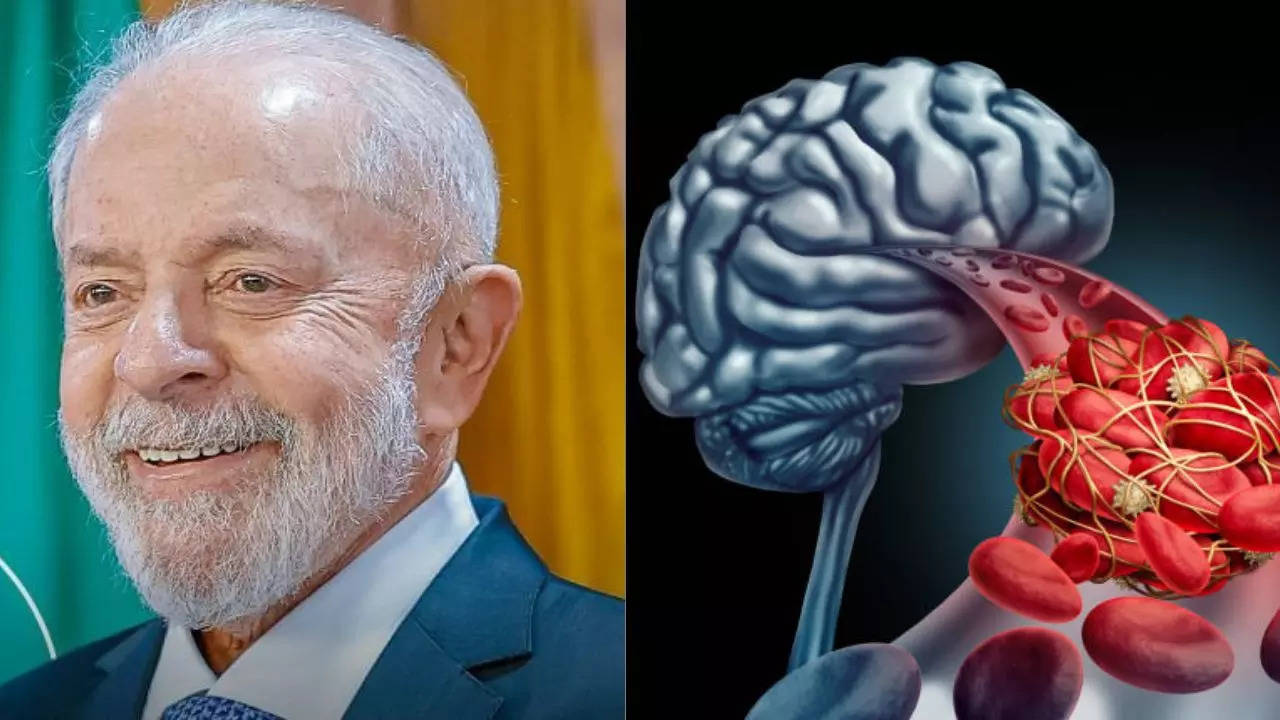Contents
-
news
-
Health
Brazilian President Lula had to undergo surgery for intracranial hemorrhage. Know the serious complications
Brazilian President Luiz Inácio Lula da Silva is recovering in the intensive care unit after surgery due to intracranial bleeding, the Hospital Cirio-Libanes said in a statement. The 79-year-old leader suffered a headache, which doctors say was caused by a fall at home in late October. Experts say that intracranial hemorrhage, also known as brain hemorrhage, is a type of stroke that occurs when your brain is unable to store oxygen, and so it is unable to supply oxygen and nutrients. Depend on a series of blood vessels. Doctors say that when this condition occurs, blood leaks or bursts from a blood vessel, causing blood to pool within your skull and brain.

A scar from the accident was visible on the back of Lula’s head, slightly above her neck.
Brazilian President Luiz Inacio Lula da Silva is recovering in the intensive care unit after surgery for intracranial bleeding, the Cirio-Libanes hospital said in a statement. The procedure was done after the 79-year-old leader started experiencing headaches, which doctors said was caused by a fall at home in late October.
The hospital reported that Lula, who had flown from the capital Brasília for treatment in Sao Paulo, was now feeling well “under observation in an ICU bed” after suffering bleeding. A scar caused by the accident was visible on the back of his head, slightly above his neck.
what is intracranial hemorrhage,
Intracranial hemorrhage, also known as brain hemorrhage, is a type of stroke that occurs when your brain is unable to store oxygen, and so it closes to a series of blood vessels to supply it with oxygen and nutrients. depends on. Doctors say when this condition occurs, blood leaks or bursts from a blood vessel, causing blood to pool within your skull and brain. This puts pressure on your brain, preventing oxygen and nutrients from reaching your brain tissues and cells.
Bleeding in the brain is extremely common after falls and traumatic injuries, while it can also occur in people who cannot manage high blood pressure.
According to doctors, intracranial hemorrhage is a life-threatening medical emergency, because it only takes three to four minutes for your brain cells to die if they do not get enough oxygen.
Is brain bleed fatal?,
Bleeding from the brain can be life threatening and cause permanent brain damage. The severity and outcome of a brain hemorrhage depends on its cause, location, size of the hemorrhage, and the time gap between bleeding and treatment. Once brain cells die, they don’t come back.
The damage can be severe and result in physical, mental, and work-based disability.
Signs and symptoms of brain hemorrhage
According to experts, the symptoms of a brain hemorrhage can vary according to its cause, but include:
- sudden tingling, weakness, numbness, or paralysis of your face, arm, or leg, especially on one side of your body
- sudden and severe headache
- nausea and vomiting
- Confusion
- Dizziness
- slurred speech
- lack of energy and sleepiness
- difficulty swallowing
- lose sight
- stiff neck
- light sensitivity
- loss of balance or coordination
- Difficulty breathing and abnormal heart rhythm
- recovery
- loss of consciousness and coma
What is Risk Factors for Brain Hemorrhage,
This condition can affect anyone at any age, from newborns to adults. However, you may be at higher risk of a brain hemorrhage if you experience the following:
- high blood pressure
- substance use disorder
- smoking
- Bleeding conditions or conditions that require treatment with blood-thinning medications
- Pregnancy and Childbirth Conditions
- Conditions that affect the formation of your blood vessel walls.
What are the complications of brain bleed?
Doctors say that if not treated immediately, bleeding in the brain can lead to permanent brain damage or death. The condition also affects the overall functioning of your body, so you may experience:
- permanent memory loss
- Difficulty swallowing, speaking, and communicating
- Challenges of coordination and movement
- paralysis or inability to move any part of your body
- numbness or weakness in any part of your body
- lose sight
- Personality changes and emotional changes
Get the latest news live on Times Now with breaking news and top headlines from around the world.


